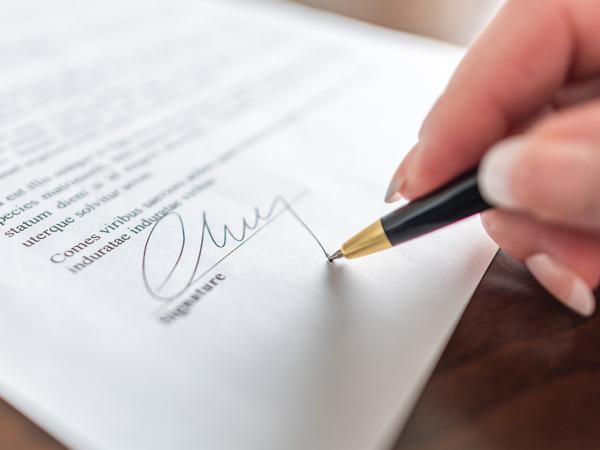Trust registration service
If you are a trustee or personal representative, you may need to register your trust or a deceased person’s estate under the trust registration service. This page gives an overview of whether and how you need to register.

Content on this page:
Trust registration service
The trust registration service (TRS) is managed by HMRC. It is the government’s way of keeping a record of trusts in the UK.
The TRS records the beneficial ownership of assets held in trust. So, if one person (the trustee) legally ‘owns’ an asset or collection of assets, there is a separate record of who actually benefits from the asset(s) (the beneficiary).
Originally, the TRS was only for trusts that had certain tax liabilities.
From 6 October 2020, the need to register under the TRS was extended to cover many other types of express trusts – even the most simple arrangements – including where there is no tax liability.
Trusts that need to register
Most UK trusts need to register under the TRS. A trust which needs to register under the TRS is referred to as a ‘registerable’ trust. Non-UK trusts are outside the scope of this guidance.
Some deceased estates also need to be registered under the TRS – you can read more about this on GOV.UK.
There are different rules for registration, depending on whether the trust is taxable or non-taxable. We briefly explain each below.
Taxable trusts
Since 2017, UK trusts that are subject to the following taxes have been required to register under the TRS:
- Capital gains tax
- Income tax
- Inheritance tax
- Stamp duty land tax
- Stamp duty reserve tax
- Land and buildings transaction tax (in Scotland)
- Land transaction tax (in Wales)
For taxable trusts created on or after 6 April 2021, the trustees have had to register the trust within 90 days of becoming liable for tax or 1 September 2022 – whichever is later.
Different registration deadlines applied for taxable trusts created before 6 April 2021. You can read more about the registration deadlines for trusts created before 6 April 2021 on GOV.UK.
Non-taxable trusts
As a general rule, from 6 October 2020, UK non-taxable express trusts need to register under the TRS. However, this is subject to some exemptions, outlined below.
Express trusts that do not need to register under the TRS if they do not have a tax liability include:
- Pension schemes;
- Charitable trusts;
- Trusts set up in a person’s will if the trust is brought to an end within two years of death;
- Certain trusts that pay out on death or critical illness;
- Existing trusts with a value of less than £100 created before 6 October 2020;
- Trusts set up to hold jointly-owned property, where the legal and beneficial owners are the same; and
- Disabled persons trusts and certain other trusts for vulnerable beneficiaries, such as those set up for children with a deceased parent.
If you are not sure if you need to register a trust under the TRS we recommend you get professional advice. See our page Tax help on bereavement, trusts and estates.
The deadline for registering non-taxable trusts depends on when the trust was created:
- For non-taxable trusts created on or before 6 October 2020 the registration deadline was 1 September 2022.
- For non-taxable trusts created after 6 October 2020, the deadline was 90 days from it being created or 1 September 2022, whichever was later.
Registering a trust
If a trust is required to register under the TRS, whether as a taxable or non-taxable trust, then it is the trustees (that is, the legal owners of the trust assets) who must register the trust under the TRS.
If there is more than one trustee then they have a joint legal responsibility to register the trust, but only one trustee needs to do the registration. The trustees should decide between them which trustee will be the ‘lead trustee’ and will register the trust under the TRS. That lead trustee will be the main point of contact for HMRC. The trustees can choose to pay an agent (a tax adviser, for example) to register the trust on their behalf.
Trustees are able to register trusts under the TRS via GOV.UK.
Trustees will need a government gateway user ID to complete the registration. This will not be the same as their personal government gateway user ID (for example, if the trustee also uses HMRC online services to access their personal tax account or self assessment record). It will be a separate government gateway user ID specifically for the trust. If registering more than one trust, then separate government gateway IDs will be needed for each trust.
You can read more about the government gateway in our separate guidance.
Information to be included
All trusts that are required to register regardless of whether they are taxable or non-taxable trusts must provide information about the following:
- the lead trustee
- the other trustees
- the settlor
- the beneficiaries
If the trust is taxable, you need to provide more information. In particular, you will also need to provide National Insurance numbers/passport details for beneficiaries of the trust, and information about the assets held by the trust.
The TRS will also ask you to confirm if the beneficiaries have ‘mental capacity’. You do not have to disclose this if you do not wish to or do not know. In both cases, we understand that HMRC say you should tick the ‘I do not know’ box.
You can read more about the information required for taxable and non-taxable trusts on GOV.UK.
After registration
If there are any changes to the details on the register, the lead trustee must update the details under the TRS. This can be done by logging in via the government gateway, using the user ID for the trust.
Usually, any changes to the trust register need to be updated within 90 days of the change. You can read more about updating the trust register and deadlines for doing so on GOV.UK.
For taxable trusts, the trustees will also need to tick a box when preparing the trust’s self assessment tax return to confirm that the details on the trust register are up to date.
Penalties
HMRC include information about penalties for TRS failures in their Trust Registration Service Manual.
HMRC say trustees could face a penalty of £5,000 per trust for any failure to register on time or keep the register up to date.
HMRC’s guidance says a penalty will not be charged for the first ‘failure to register’ or the first ‘failure to keep the register up to date’ offence, so long as the failure was not deliberate.
In practice, we understand that if HMRC become aware that a trust is not registered when it should be, they may issue a ‘warning letter’ and give the trustees an opportunity to register (or update the register) before issuing any penalty.
Trustees of taxable trusts could still face separate penalties for failing to notify chargeability (that is, failing to register for self assessment), if they are required to do so. You can read more about failure to notify penalties in our page Tax penalties and interest.
Trust registration: example situations
It may not always be obvious when a trust actually exists, and whether it is registerable under the TRS. We list below some situations and whether they would amount to a trust that needs to be registered. This is not an exhaustive list.
- Jointly owned property
-
A property owned jointly by spouses/civil partners/unmarried cohabitees, but with a declaration of trust in place to show that they own the property in unequal proportions. In this case, the trust is covered by the joint ownership exemption. Since the trustees are the co-owners, and the beneficiaries are also both the same co-owners, this situation is not registerable. You can read more about this exemption on GOV.UK.
- Solely owned property
-
A property owned by one person only, but with a declaration of trust in place to state that the property is beneficially owned by themselves and another person (or other people). This can sometimes be the case with spouses/civil partners, particularly where the property in question is a rental property and the spouses wish to split the rental income between them. In this case, the trustee would be the spouse/civil partner who owns the property and the beneficiaries would be that same owner and their spouse/civil partner. Since one of the beneficiaries is not also a trustee, this would not fall within the joint property ownership exemption and would therefore be registerable as a non-taxable trust.
- Property left in a will as a life interest
-
A property left to a person’s spouse/civil partner in their will, allowing them to live in the property for the rest of their life, but not own the property outright. This is quite a common situation and is an example of a will trust. In this case, the surviving spouse has what is called a ‘life interest’. There is an exemption for will trusts that come to an end within two years of the person’s death. If, however, the surviving spouse continues to live in the property beyond two years (which they are allowed to do so under the will) then the trust will become registerable two years after the death of the first spouse.
- Bank accounts held for children
-
Bank accounts holding cash on behalf of a minor child or a person lacking mental capacity are not registerable. You can read more about this exemption on GOV.UK.
- Investment accounts held for children
-
Accounts holding investments such as stocks and shares on behalf of a minor child or person lacking mental capacity are registerable (unless within a Junior ISA – see below).
- Junior ISAs
-
HMRC have specifically agreed that cash junior ISAs and stocks and shares junior ISAs are not registerable.
- Premium bonds held for children
-
HMRC have confirmed that premium bonds held in the name of a minor child do not create a trust and are therefore not registerable.
Digitally excluded trustees
A digitally excluded trustee is one who, for reasons of age, disability, remoteness of location, religion or other valid reason is unable to use HMRC’s online digital services.
If you are a trustee and are concerned that you will not be able to deal with the TRS digitally then you should call HMRC’s trust helpline for help and support.
Further information
You can read more about the different kinds of trust on GOV.UK, and about when you must register a trust.
HMRC’s Trust Registration Service Manual provides more information on the TRS.
If you need further help then we recommend seeking professional advice.



